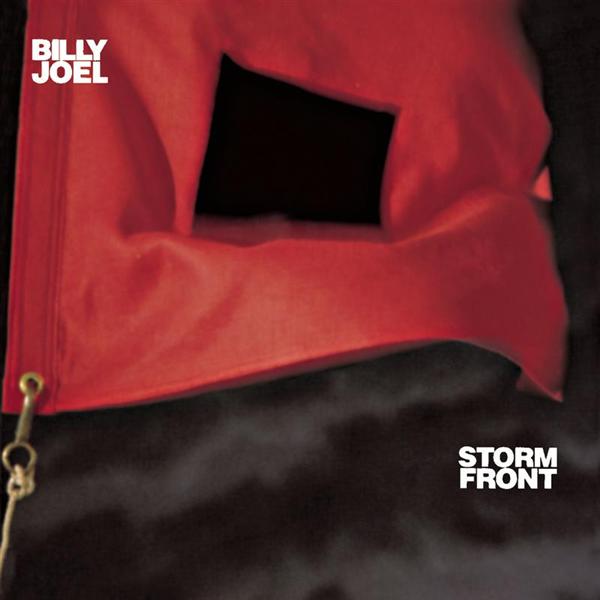
Storm Front (1989)

1. That's Not Her Style
2. We Didn't Start the Fire
3. The Downeaster "Alexa"
4. I Go To Extremes
5. Shameless
6. Storm Front
7. Leningrad
8. State of Grace
9. When in Rome
10.And So it Goes
By the end of the 1980s, Billy Joel had reached a professional plateau. Having spent over a decade with the same producer (the meticulous Phil Ramone) and the same core of backing musicians, it’s perhaps unsurprising that Joel sensed a creeping complacency. So, in one of the most dramatic shifts of his career, he cleaned house. Out went nearly everyone, save for loyal drummer Liberty DeVitto. In came Mick Jones of Foreigner fame, a curious choice whose production résumé lacked the polish of Joel’s earlier collaborators. But with new blood came new tension, and from that tension emerged one of the strongest albums of Joel’s career.
Storm Front is the sound of a man rediscovering his hunger. If The Nylon Curtain had been cerebral and An Innocent Man nostalgic, this record leans into grit and thunder. The opening track, That’s Not Her Style, is both a musical and thematic mission statement. Inspired by then-wife Christie Brinkley—not so much the person as the public’s relentless obsession with her—it kicks off the album with a roadhouse swagger, as if daring listeners to talk about the music rather than the model.
Then comes the song that needs no introduction: We Didn’t Start the Fire. A rapid-fire litany of postwar history set to a circular, oddly hypnotic pop-rock pulse, it remains divisive—less for its ambition than for its blunt delivery. Critics scoffed, but the public embraced it, perhaps sensing that the litany wasn’t about clever rhymes but cultural exhaustion. Joel doesn’t try to explain the fire—only to acknowledge that it’s been burning long before him.
Elsewhere, Storm Front finds Joel balancing bombast with tenderness. The Downeaster Alexa, a violin- and accordion-laced paean to Long Island’s vanishing fishing trade, proves he can still channel social conscience through evocative melody. Meanwhile, Leningrad serves as a sobering coda to his Soviet tour, juxtaposing American innocence with Russian tragedy in a few devastating verses. Its gentle arrangement lets the emotional weight land unforced, marking one of Joel’s most personal compositions.
Surprises abound. Shameless,which later became a massive country hit for Garth Brooks, proved Joel’s writing could transcend genre without compromising identity. The album closes not on an anthem, but on a whisper: And So It Goes, a stark, mournful piano ballad that distills heartbreak into crystalline stillness. That it charted as a single at all is a testament to Joel’s melodic authority.
Behind the scenes, however, different kinds of storm clouds gathered. Financial mismanagement had left Joel nearly penniless by the time of the album’s release—a fact that drove the massive tour that followed. But the irony was poetic: a man at his most exposed, singing with more power than he had in years. If Storm Front represented the peak of his late career, it also marked the end of an era. Joel would record only one more pop album afterward.
Still, for a moment, the fire burned brighter than ever.
Back To Main Page
Go To Next Review